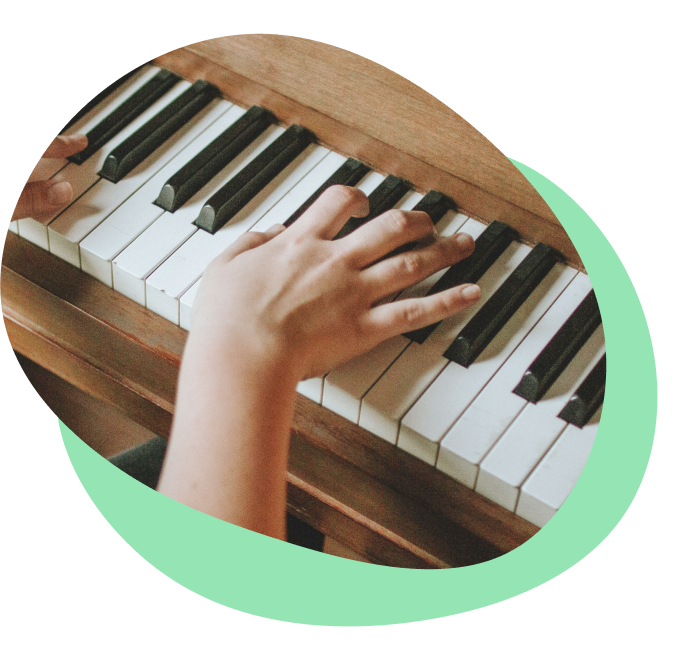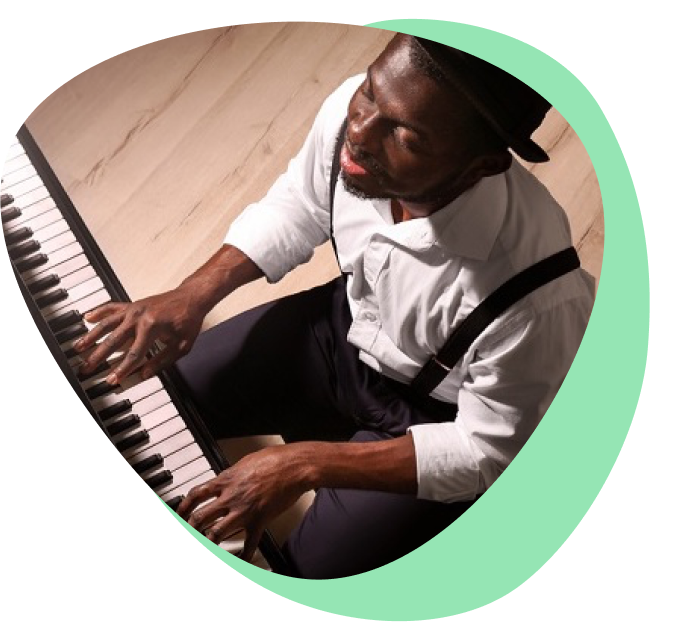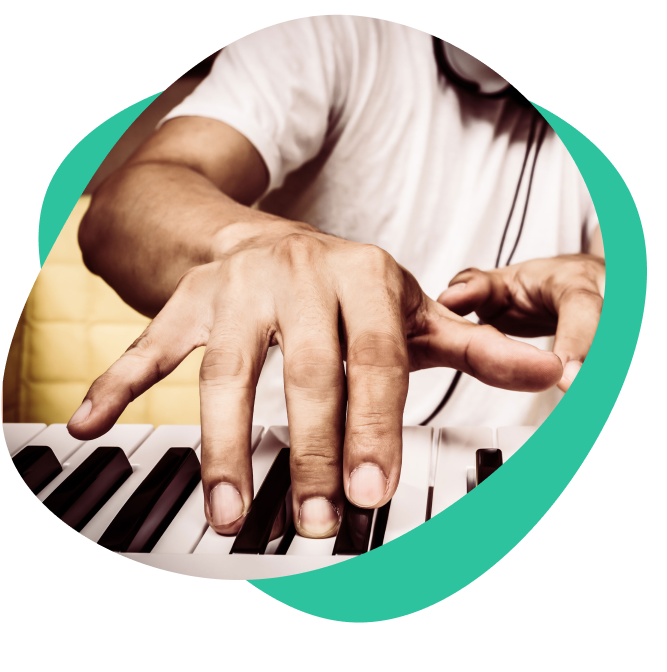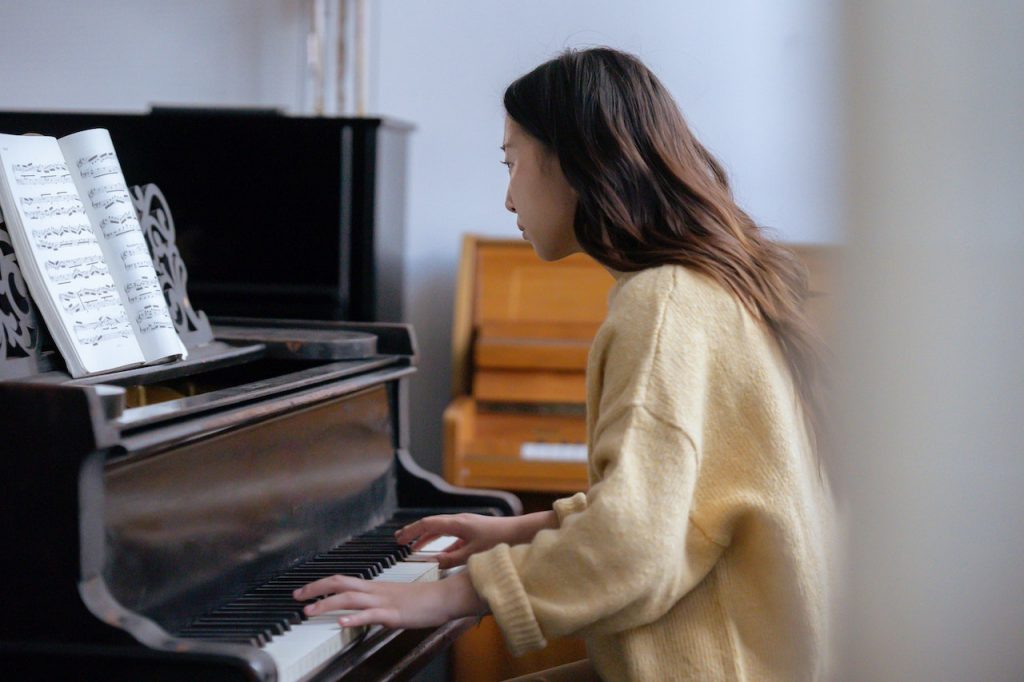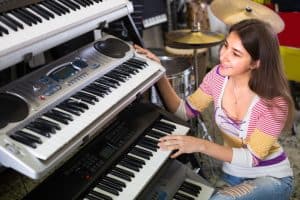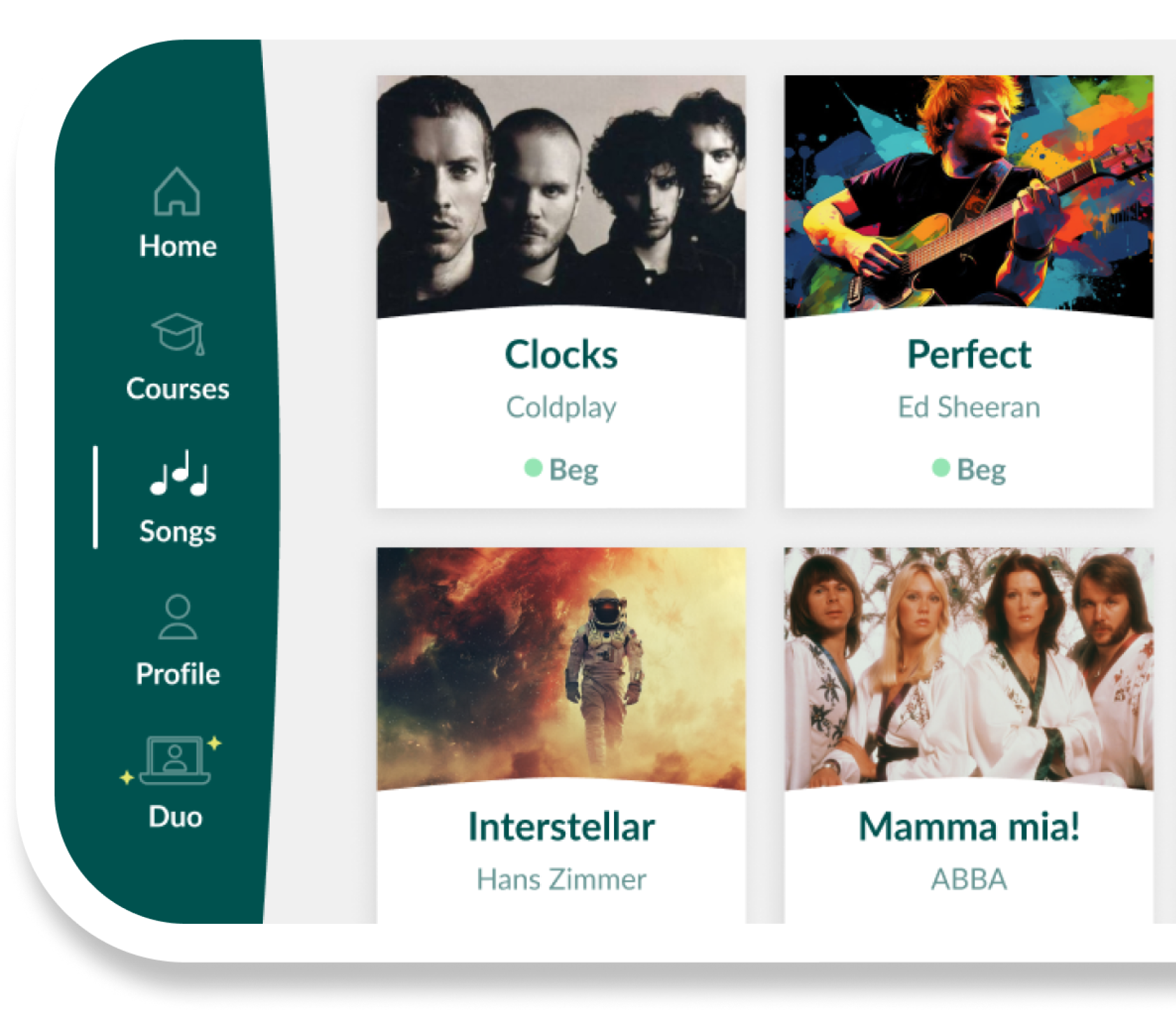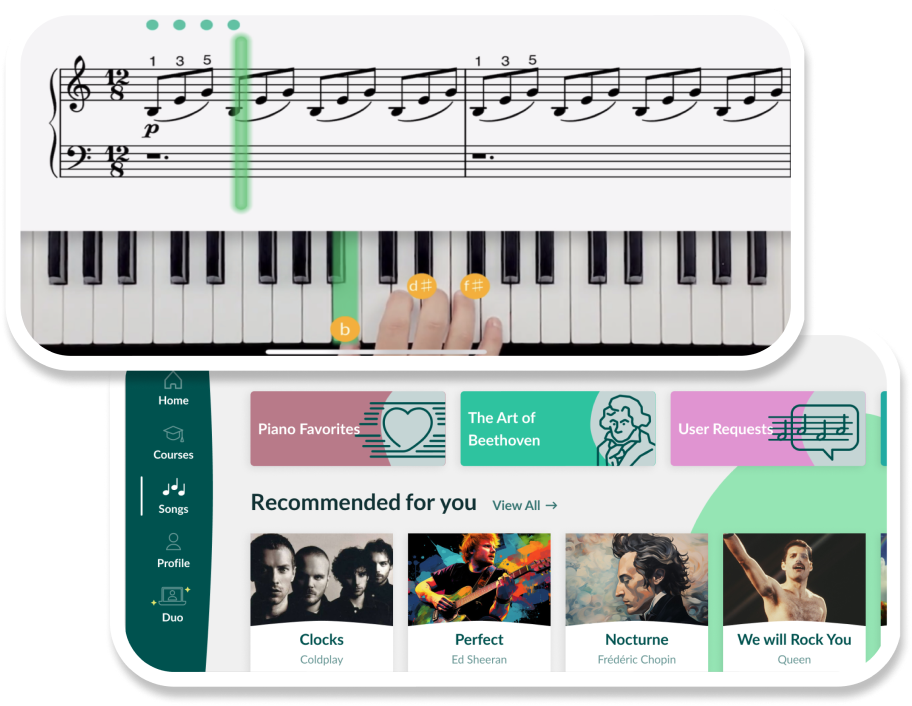You’ve likely encountered the phrase “I’m too old to begin learning the piano” more times than you can tally, haven’t you? Well, let’s shatter that glass ceiling today. The idea that you’re “too old” to start learning piano at 25 is as outdated as a cassette tape.
The age bias in learning instruments
Ah, the age-old question—pun intended! Is there a “perfect age” to start learning an instrument? Society often whispers that youth is the golden ticket to mastering the piano or any other instrument. But let’s hit the pause button on that tune. The notion that you’re past your prime for learning piano at 25 is a myth that needs debunking.
Why the age bias exists
- Cultural stereotypes: We’re bombarded with images of young prodigies, leading us to believe that musical talent is a young person’s game.
- Parental influence: Many adults think they missed the boat because they didn’t have childhood lessons.
- Fear factor: The older we get, the more we fear judgment or failure.
The facts speak louder
Ready for a reality check? Studies have shown that adults are just as capable of learning new skills as children, if not more so.
- Brain plasticity: Contrary to popular belief, our brains remain “plastic” or capable of change, well into adulthood.
- Focused learning: Adults have the ability to focus and practice deliberately, which is crucial for mastering an instrument.
A study published in the Journal of Neuroscience found that adults who practiced piano for just six months had significant neural growth.
Why 25 is a great age to start
Cognitive benefits
Hold onto your piano sheet music, because we’re diving into the brainy stuff! Learning piano at 25 isn’t just a fun hobby; it’s a cognitive workout. Playing the piano engages multiple areas of the brain, from motor skills to auditory processing.
The science behind it
- Memory boost: Learning to read music and memorize pieces enhances your memory.
- Improved multitasking: Juggling different piano elements like rhythm, pitch, and tempo can improve your multitasking skills.
A study from the University of Kansas Medical Center showed that musicians performed better in cognitive tests compared to non-musicians.
Emotional and psychological gains
Let’s talk about feelings, shall we? Playing the piano isn’t just about hitting the right keys; it’s about unlocking your emotional world.
The feel-good factors
- Stress relief: The act of playing can be incredibly meditative.
- Emotional expression: Music provides an outlet for emotions that words can’t capture.
How to get started
Embarking on the journey of learning how to play the piano is an exciting endeavor, but where do you begin? In this section, we’ll guide you through the crucial steps of getting started, ensuring you lay a strong foundation for your musical exploration.
Choosing the right piano
First things first, you need an instrument. But not just any piano will do; you need one that suits your needs and budget.
Checklist for choosing a piano
- Type: Acoustic or digital? Acoustic pianos offer a rich sound but are pricier and need space. Digital pianos are more budget-friendly and portable.
- Size: Got room for a grand piano or is a keyboard more your speed?
- Budget: Establish a practical budget, keeping in mind that what you receive often corresponds to what you invest.
- Features: Do you need built-in lessons, headphone jacks, or recording capabilities?
Finding a teacher vs self-learning
So, you’ve got the piano. Now, do you go solo or bring in a pro? Let’s weigh the options.
Pros and cons
Hiring a teacher
- Pros: Personalized guidance, structured lessons, and instant feedback.
- Cons: Can be expensive and requires a set schedule.
Self-learning
- Pros: Flexibility, go at your own pace, and often cheaper.
- Cons: Lack of structure and no immediate feedback.
Tips for finding a good teacher
- Credentials: Look for teachers with a solid educational background in music.
- Teaching style: Make sure their teaching style aligns with your learning style.
- Reviews: Check online reviews or get recommendations.
Setting up a practice routine
You’ve got the piano, maybe even a teacher. Now, you need a game plan.
Practical tips
- Consistency is key: Aim for at least 15-30 minutes of practice daily.
- Set goals: Whether it’s mastering a song or a piano scale, have a target.
- Track progress: Use apps like Skoove to monitor your improvement.
Common challenges and how to overcome them
So you’re all set to tickle the ivories, but let’s be real—every journey has its bumps. Here’s how to navigate the common challenges you might face.
Time management
Ah, the ever-elusive 25th hour of the day. We all wish we had it, especially when juggling work, family, and your newfound love for the piano.
Time management tips
- Prioritize: Make a list of your daily tasks and see where piano practice fits in.
- Schedule it: Treat your practice time like an important meeting.
- Chunk it: If you can’t find a long stretch, break your practice into smaller, manageable chunks.
- Use dead time: Got 20 minutes before a meeting? That’s enough time for quick piano finger exercises.
Staying motivated
Let’s face it, motivation can be as fickle as a cat on a piano. One minute you’re all in, the next you’re scrolling through social media.
Why motivation matters
- Long-term commitment: Learning piano is a marathon, not a sprint.
- Skill development: Consistent practice leads to improvement, which fuels motivation.
The final note
Remember, age is just a number, but the joy and benefits of playing the piano are timeless. Whether you’re in it for the cognitive gains, emotional release, or just the sheer love of music, the piano has something for everyone.
And hey, if you ever find yourself stuck or in need of a little extra guidance, Skoove is always here to help you hit the right notes by offering online piano lessons.
Author of this blog post:

Eddie Bond is a multi-instrumentalist performer, composer, and music instructor currently based in Seattle, Washington USA. He has performed extensively in the US, Canada, Argentina, and China, released over 40 albums, and has over a decade experience working with music students of all ages and ability levels.




